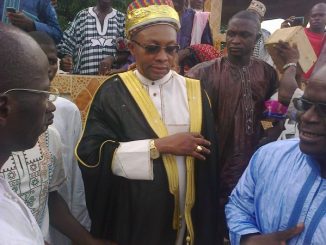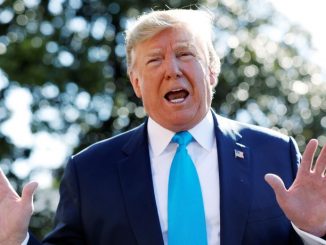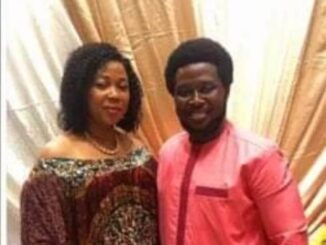Ibrahim Abdullah
Of Public Histories and Commemorations: 1807,1827,1967 and 1977
2007 conjures multiple and contradictory memories/images of disparate and seemingly unconnected events and processes. We celebrate the 200th anniversary of the end of the European slave trade; the 180th anniversary of Fourah Bay College as an institution of higher learning; the 40th anniversary of the electoral defeat of an incumbent government in post-colonial Africa; and the 30th anniversary of a national student movement that forced the corrupt and decadent APC to call for a national elections. All these streams feed into what constitutes the national river of Sierra Leone history, referencing the global and the local in the making/remaking of contemporary Sierra Leone/Africa.
Celebrating the continued existence of an institution of higher learning against tremendous odds underlines its tortuous history as a struggling/tottering Ivory Tower, a space for ideas to right the wrongs of society, essentially the driving force behind the radical student movement in 1977. Memorializing the bi-centenary of the demise of the trade in human beings provides an opportunity for Sierra Leoneans/Africans to reflect on their forced migration to the so-called new world and their traumatic and forcible entry into the world historical stage, yes, into modernity, as subjects and objects, not agents, to be acted upon. The defeat of an incumbent government in a multi-party election uncovers the centrality of the Fourah Bay College in mobilizing public opinion against Sir Albert’s one-party proposals, as faculty and students teamed up with the opposition to resist what was then seen as a creeping dictatorship.
Truncated and unconnected as they might appear, these events are linked, chained, cemented, in one broad historical sweep: they are central to our individual and collective identities as a people, a nation of Africans negotiating a tortuous path to modernity in an increasingly globalized world that threatens to marginalize and subordinate even as it incorporates us.
Thus there are justifiable grounds for ‘celebrating’ with a lower/ upper case c; for ‘celebration’, however hard we try to qualify it, is a metaphor for hard-nosed reflection, a bulwark against willful and wily erasure of events/processes that hinge on our collective survival as a people. Such hard-nosed reflections are embedded in the very fabric of human existence: an essential paradox of life that humanity has known throughout history.
For starters, the academic and intellectual environment at FBC does not befit a college whose claim to fame rests on its being the first institution of higher learning in so-called Black Africa nor is the historic electoral victory of an opposition party a justifiable grounds for celebrating the restoration of multi-party democracy in a Sierra Leone where 70% of the people live on less than a dollar a day. Squandering the popular support that brought the opposition to power in 1967, Sierra Leone’s political class, under the banner of the Rising Sun, nearly wrecked the nation-state project with a dictatorship that created the conditions for an insurgency movement twenty-four years later. It would be Students from F.B.C, West Africa’s premier institution of higher learning, who would inaugurate the insurgency discourse and facilitate the training of ‘mercenaries’ in Tajura, Libya. To celebrate 180th anniversary of Fourah Bay College’s existence as an institution of higher learning sans decent graduate program and library in the Humanities or Social Sciences plus a competent and qualified faculty/professorate would be to celebrate life (vive joie?) by extolling bare existence!
Similarly, celebrating the bi-centenary of the end of the trade in human bodies—it masks the grim reality of life in post-1807 Sierra Leone—does not tell us that slavery and the trade in human bodies survived the 1807 proclamation in the so-called Province of Freedom, and even continued to flourish in the Sierra Leone area, with descendants of slaves actively involved as slavers, for another one hundred and twenty-nine years before it was finally abolished in 1927—eighty odd years ago! Such hard-nosed reflections should constitute an integral part of the national menu as we celebrate our forceful entry into modernity—freedom, democracy, education and knowledge —which is what these events really and truly represent.
Making claims for an inclusionary menu—with bitass, bolorgie, shapah, egusi, et al—is a democratic demand that enjoins us to sit on the same dinning table, hoi polloi and aristocrats, to celebrate, yes to deliberate, as we reflect on the multiple legacies of our heroic and popular struggles against slavery and the slave trade; against one-party dictatorship and repression; against ignorance and backwardness. An exclusionary menu—of steak and barracuda— that excludes the hoi polloi undermines the spirit and the gains of 1807, 1827,1967 and 1977.
1807, 1827, 1967, and 1977 are therefore not just numerals, meaningless numbers, or dates. Rather, they symbolize an organic ensemble linked to the soul of the nation-state that we today call Sierra Leone. Interrogating these markers of modernity reveals the ‘other sidedness’ of our histories, yes the messiness that is always silenced by and through official and hegemonic discourses. The heroic resistance of slaves as well as the decline of profit from the plantation economy shaped the activities of the so-called Humanitarians: Wilberforce, Sharp et al. The struggle for freedom by African slaves humanized Euro-America for it became the foundation for an elaborate body of intellectual labour on freedom, justice and democracy. When the first student enrolled at the newly established Fourah Bay College, Ajayi Crowther an Oyo who landed in Freetown as a (re) captive en route to the so-called New World railed against institutional racism and British bigotry in the CMS mission he was claiming his humanity and affirming his inalienable right as an African within the White Church. And when Ajayi Crowther the first black bishop passed away in 1893, the racists CMS apparatchiks made sure that no African would occupy the position of diocesan bishop in West Africa until sixty years later.
The 1967 defeat of an incumbent government was arguably the single most important event in the history of multi-party democracy in Sierra Leone. The regime change was instrumental in averting military dictatorship, a form of government that would soon dominate African states. Yet to read 1967 in isolation from 1977 is to miss the historical connection between the two events in the history of democratic struggles in Sierra Leone. If 1967 demonstrated the historical possibility of democratic change through the ballot box, 1977 reiterated the possibility of such a change reoccurring through peoples struggle. For the APC had squandered whatever goodwill they had in 1968 so that a sustained push on all corners—the students did their best—would have returned the SLPP to power. But this did not happen: indeed history failed to turn in 1977!
Could we then say that the APC is condemned to ‘repeat history’ after being in opposition for ten years—like the SLPP was from 1967 to 1977? Put differently, can the APC do what the SLPP failed to do in 1977 or repeat what they did in 1967?: unseat an incumbent government in power? Koroma predicts a rerun of 1967; Berewa forecasts a landslide. Both party leaders have vowed to remake history in their own separate ways but none has raised the debate to the level of a national conversation. Rerun or landslide 2007 should be about how to deepen democracy, how to deliver the dividends of democracy, and how to mobilize, to garner the wherewithal—yes the resources—to make such a proposition feasible. The challenge of
2007 is not about electoral victory even though that is central to the whole denouement but about how to reconfigure state and society in the context of a changing world. This would mean re-imagining governance and privileging the collective interest of the nation as against the party or the individual. Central to this re-imagining paradigm would be the creation of solid national institutions to serve as the bulwark of the new democratic dispensation: institutions that would be above and beyond petty party politics. That this did not happen in ’67 and, again in ’77 is more reason why it should happen NOW!
As a nation we have been too silent and gentle about our collective past(s). The solid/robust critique that is always needed to transcend multiple pathways, to build bridges, to break new grounds, and forge ahead have tended to by-pass us in part because of intellectual laziness and in part because of political apathy. Every generation throughout history has been compelled to rethink their past(s) in the light of the present. Creating and re-creating myths in the name of the collective, the nation, and the community is as old as history. To symbolically rename Victoria Park as Thomas Peters Park or rename COMHAS as Africanus Horton School of Medicine or even the law school as Sir Samuel Lewis Law School is to reclaim/remake history in the present. How about renaming Kissy Road as Maxwell Khobe By-pass? Our own arc de triomphe from whence the General gallantly entered the beleaguered city.
Public history, lest we forget, is highly political and fiercely contested. Too political, some would argue, too controversial, others have maintained. What to remember and how to remember what to forget reads like an attempt to control the public imagination or to manufacture consent! 1807, 1827, 1967 and 1977 are key signifiers with multiple meanings. I’ve only attempted to breathe a little life into them—making sense of the past? —in light of contemporary Sierra Leone/Africa.
Ibrahim Abdullah




Leave a Reply